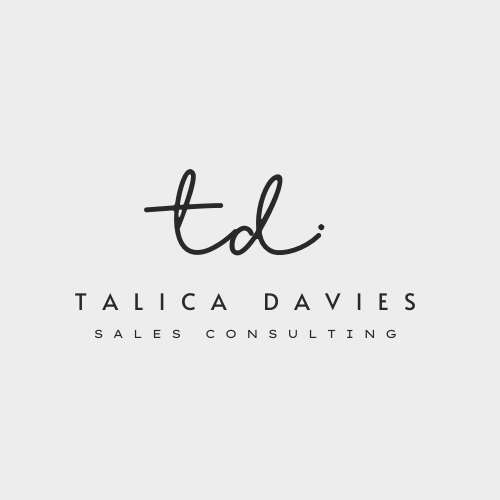Love & Business In the Time of Corona(virus)
As I write this we're 4 days into the World Health Organization declaring the coronavirus covid-19 a pandemic, and the world is reacting.
Global equity markets have been on a wild ride. Traditional safe havens like gold, utilities and consumer goods appear to lack the same immunity to market turbulence they typically enjoy. Central banks are responding with monetary policy measures. Governments are issuing travel advisories and social distancing recommendations. Schools and universities are closing. People across the country have been hoarding toilet paper.
There's no shortage of uncertainty right now, and seeing as I'm two days into my own self-isolation (I'm not sick and I haven't travelled anywhere...I'm just seizing this opportunity to live my best hermit life) I've had some time on my hands. When I haven't been tending to my plants, organizing my cupboards and culling my friend/contact list of anyone who shares misinformation and annoyingly alarmist articles, I've been searching for the silver lining of the current economic climate and how this pertains to business.
During my 11 year wealth management career I worked through 7 bear markets and 2 market crashes, the most notable being the 2008 global financial crisis. I spent a lot of time having conversations about the importance of understanding and working on your relationship with risk, having and adhering to a sensible financial plan and recession proofing your portfolio. All of these lessons can be applied to how you decide to run your business during times of uncertainty.
Risk
Many people tend to over estimate their personal exposure to risk. They think about risk in terms of the worst case scenario. In my former life this often translated into - 'I'm going to lose all my money if I invest it', when so often the real risk many of my clients were exposed to was going broke slowly due to the high concentration of cash, or cash like equivalents in their portfolios. In my business circles I'm seeing this take hold as fears of not being able to sell services and ultimately going bankrupt. It's important to distinguish between real and perceived risk during times like this. Has your business and offering actually been rendered ineffective? Is the risk of going bankrupt actually greater than the risk of pulling back? What is the risk of pulling back, how does that impact revenue and cash flow?
If you happen to fall into the worst case scenario camp when assessing business risk: 1. you're not alone and 2. there's hope! We can continually work on our relationship with risk - this podcast episode from Eleanor Beaton, founder of Fierce Feminine Leadership, has some excellent tools on how to do so.
Furthermore, a study by the World Bank suggests that during the 2003 SARS outbreak 20% of the economic impact came from the virus itself, while 80% came from aversion measures (people behaving differently to avoid getting sick). As we receive more information about safe practices and what we can and cannot do people will adjust their behaviour accordingly (I'm a lifelong economics student and need to believe that people behave rationally). So, if we all remain level headed and choose to make pragmatic decisions versus fear based decisions we can have a direct effect on the ensuing economic impact. **
Plan
The individuals, companies, organizations and countries with a solid plan stand the best chance to ride waves of economic uncertainty. During periods of market turbulence did I encourage my clients to abandon their financial plan, sell at the bottom of the market and sit on their cash? No. That's absurd. Did we revisit the plan, reasses current needs and see if any adjustments needed to be made? Yes, absolutely. The same goes for your business. Take comfort in revisiting your business plan. Can you identify any cracks in the armour? Areas of revenue and profit leak? Are there opportunities to cut down on costs previously incurred by in person activities and reinvest in methods which allow you to continue to access and serve your market? Reassess, pivot if necessary, and keep going. Business waits for no one.
Recession Proofing
Reducing stock correlation in portfolios was all the rage during my wealth management tenure. I started my career a few short weeks before Lehman Brothers went under, and while it was a tough time to be a newbie in the investment world, I learned a lot about the importance of structuring portfolios so every single position didn't go to hell in a handbasket at the same speed and time. The same sentiment goes for your business. How can you ensure steady cash flows? Are there ways to improve the communication and positioning around your offerings so they are viewed as essential investments for your potential clients? Are there ways to adjust the delivery of your offerings to adhere to social distancing practices? Is it time to focus on the infrastructure you use to attract, nurture and serve your market? Do you have the support in place required to run the business if you are unable to (ie if you get sick, or schools close and your kids are unexpectedly at home).
There will be economic impacts from this pandemic but like most things in life we can only control how we react to them. There is plenty of reason to remain hopeful, plus your business and your market need you to do so.
If you need support, if you're bored in self-isolation, or if you're curious about how you can implement the risk/plan/recession proofing tools into your business, I'm here to help.
**I'm still looking for this study - I've found this, but haven't worked through all 30 pages yet. Full disclosure I heard this stat on The Indicator from Planet Money- The Economics of Fear and they rigorously fact check so I trust the info, they just don't post their sources :)
